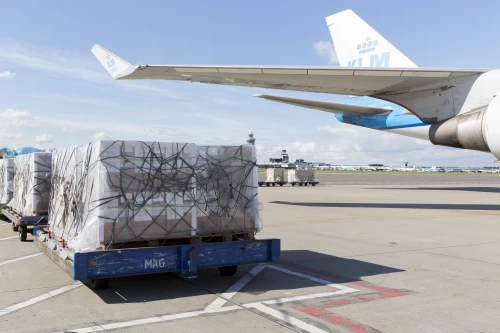- By TOP CHINA FREIGHT
- September 17, 2025
- Shipping
Table of Contents
Managing freight logistics China can be complex due to the country’s vast manufacturing base and diverse transport options. Businesses often struggle with shipping costs, transit delays, and customs clearance. By understanding logistics trends, selecting reliable partners, and choosing the right transport methods, companies can streamline operations, reduce costs, and ensure timely delivery.

What Services Do Freight Logistics Companies in China Provide?
A professional freight logistics China provider typically offers a range of services designed to simplify supply chain management:
- Sea freight services for full container load (FCL) and less-than-container load (LCL) shipments
- Air freight solutions for high-priority cargo
- Rail freight options connecting China to Europe and neighboring regions
- Customs clearance assistance with documentation and duties
- Warehousing and inventory management
- Door-to-door delivery services
These services aim to reduce transit times, minimize cargo damage, and optimize costs. Additionally, some providers offer supply chain consulting, helping businesses forecast shipping schedules and plan inventory more efficiently.
How to Choose a Reliable Freight Logistics Partner in China?
Verify client reviews and references.
Ensure the company provides air, sea, and rail solutions.
Check if customs paperwork and compliance are handled efficiently.
Real-time tracking and online portals improve transparency.
Compare quotes, including freight, customs, and handling fees.
What Are the Common Shipping Methods in China?
Freight logistics in China involves multiple transport modes. Here’s a comparison:
| Shipping Method | Average Cost (USD) | Transit Time | Pros | Cons |
|---|---|---|---|---|
| Sea Freight | 2,000–5,000 | 25–40 days | Cost-effective for bulky cargo | Slower, port-dependent |
| Air Freight | 8–15 per kg | 3–7 days | Fast, minimal handling risk | Expensive, limited capacity |
| Rail Freight | 4,000–7,000 | 15–20 days | Faster than sea, lower cost than air | Route limitations, terminal handling |
| Express Courier | 15–25 per kg | 1–3 days | Door-to-door, easy tracking | Not for large or heavy cargo |
How Much Does Shipping Logistics from China Cost?

Shipping costs depend on weight, volume, destination, and mode. Sample cost estimates:
| Cargo Type | Unit Price (USD) | Shipping Cost (USD) | Total Estimate (USD) |
|---|---|---|---|
| Small Parcel | 50–150 | 20–50 | 70–200 |
| Medium Container | 1,500–3,000 | 500–1,000 | 2,000–4,000 |
| Heavy Cargo | 5,000–7,000 | 1,500–2,000 | 6,500–9,000 |
Tips:
- Consolidate shipments to reduce per-unit cost
- Use rail for Europe-bound bulk cargo to save both time and money
- Request full documentation to avoid customs fines
What Documents Are Needed for Freight Logistics from China?

Proper documentation ensures smooth customs clearance:
| Document Type | Purpose |
|---|---|
| Commercial Invoice | Purchase proof and value declaration |
| Packing List | Detailed cargo description |
| Bill of Lading | Shipping contract and proof of receipt |
| Certificate of Origin | Confirms product origin |
| Quality Certifications | CE, ISO, or SGS certificates for safety |
| Customs Declaration | Required for duties and taxes |
Can Freight Logistics in China Be Customized?
Yes, logistics services can be tailored to client needs:
- Flexible shipping schedules for seasonal or urgent deliveries
- Special handling for sensitive or fragile cargo
- Consolidation services for small shipments
- Warehousing solutions to manage inventory near ports
Custom logistics strategies can improve efficiency, reduce storage costs, and avoid shipment delays. Businesses benefit from providers who offer consultative planning to optimize the supply chain.
What Are the Advantages of Freight Logistics in China?
Competitive shipping rates
Multiple transport options to reduce transit time
Knowledge of customs, import/export laws, and documentation
Online tracking and supply chain visibility
Ability to manage varying shipment sizes
How Long Does Freight Logistics Take from China?
Transit time varies by shipping method and destination. Estimated shipping times:
| Destination | Sea Freight | Air Freight | Rail Freight |
|---|---|---|---|
| USA | 25–35 days | 3–7 days | 15–20 days |
| Europe | 20–30 days | 3–6 days | 12–18 days |
| Southeast Asia | 5–15 days | 2–4 days | 7–10 days |
| Australia | 20–30 days | 3–7 days | 12–18 days |
Should You Use Air, Sea, or Rail for Your Cargo?
| Mode | Best For | Pros | Cons |
|---|---|---|---|
| Sea Freight | Heavy, bulky cargo | Cost-effective, accommodates large shipments | Slower, port-dependent |
| Air Freight | Urgent, high-value goods | Fast, reliable, reduced handling risk | Expensive, weight limits |
| Rail Freight | Europe-bound bulk shipments | Faster than sea, cheaper than air | Limited routes |
Advice:
Sea freight suits large shipments, air freight for urgent cargo, and rail freight for time-sensitive shipments to Europe.
Case Study: Efficient Freight Logistics from China

Scenario:
A European retailer needed 10 containers of electronics shipped from Shanghai to Hamburg.
Process:
- Selected a freight logistics China provider with FCL and rail options
- Compared costs, transit time, and customs support
- Chose rail for half of the shipment and sea freight for the rest
- Supplier managed customs clearance, insurance, and tracking
- Shipment arrived on schedule with no damages
Outcome:
The retailer reduced shipping costs by 25% and minimized storage fees by splitting transport modes strategically.
Conclusion
Efficient freight logistics China services are crucial for businesses seeking timely delivery, cost reduction, and supply chain optimization. By understanding shipping methods, documentation, and provider capabilities, companies can make informed decisions and ensure smooth import/export operations. Partnering with a professional logistics provider enhances reliability, reduces delays, and improves overall operational efficiency.
Need a Shipping Quote?
If you want expert guidance and peace of mind, our team is ready to assist.
TJ China Freight offers tailored solutions to help businesses of all sizes ship more reliably from China.

FAQ
Q1:How can I track multiple shipments efficiently?
Use a logistics portal or platform that consolidates all shipment tracking. Set alerts for updates to monitor cargo in real-time and plan warehouse operations efficiently.
Q2:What are the risks of using inexperienced logistics providers?
Delays, mismanaged documentation, and cargo damage are common risks. Always choose providers with proven experience, certifications, and reliable local contacts.
Q3:How do seasonal trends affect freight logistics in China?
Peak periods like Chinese New Year can increase congestion and costs. Planning shipments ahead and securing priority bookings helps avoid delays.
Q4:Are there eco-friendly logistics options in China?
Yes, options include rail transport, consolidated shipments, and reusable packaging to reduce emissions while maintaining efficiency.
Q5:How can I ensure security during transit?
Use tamper-evident seals, GPS tracking, and insurance coverage for high-value shipments. Coordination with reliable carriers minimizes risks.
